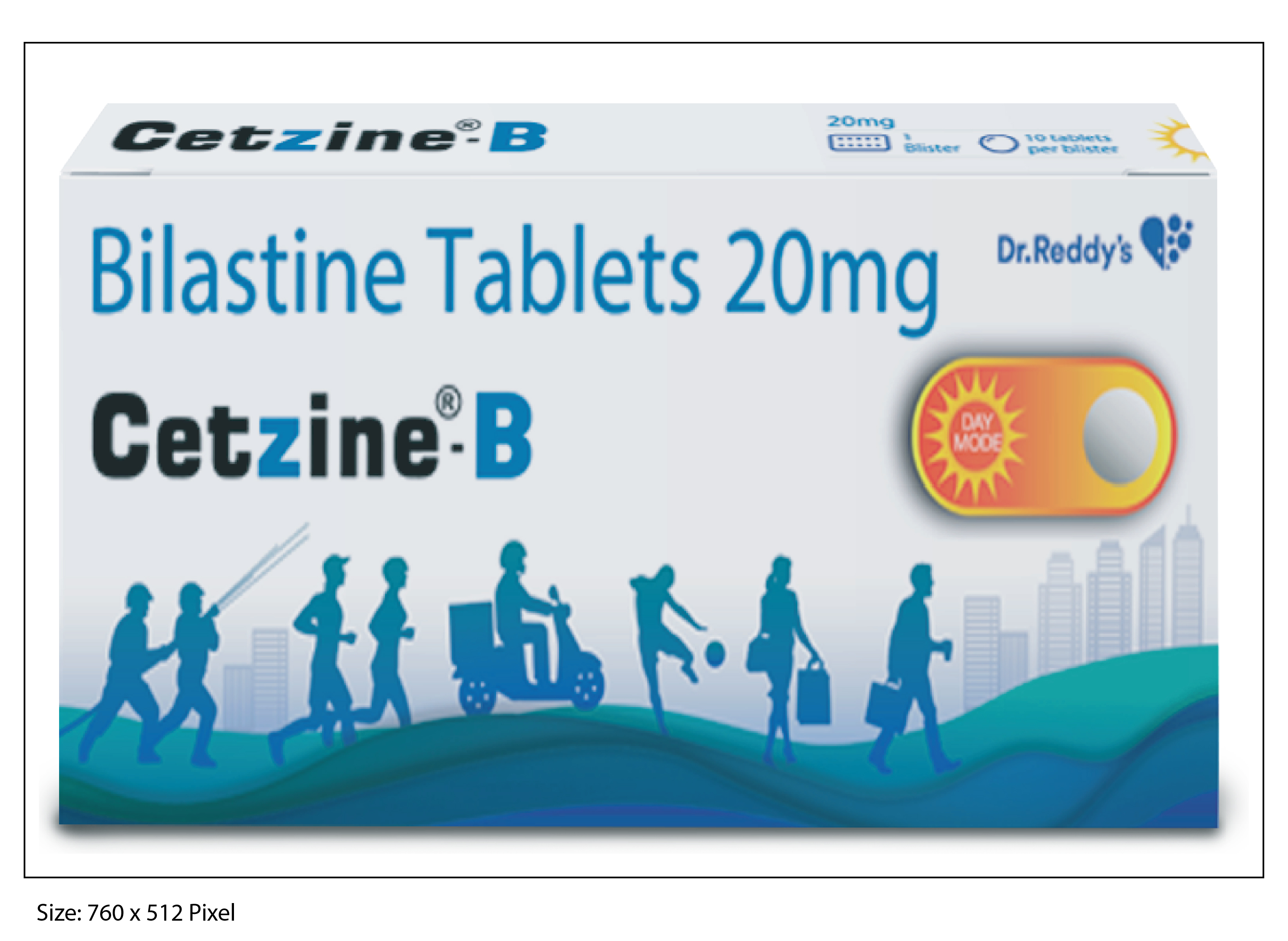Product Information
Patient Information leafletComposition:
Storage:
Store protected from light, heat & moisture, at a cool and dry place with temperature not exceeding 30ºC.Unique Identification Code:
8901148259829Manufacturing License Number:
M.L. 4/UA/LL/2014For the treatment of Allergic Rhinitis in adults.
Orally, once daily or as directed by the physician
Hypersensitivity to Bilastine, Montelukast or to any ingredient in the formulation or component of the container. A history of QT prolongation and/or torsade de pointes, including congenital long QT syndromes
It has been associated with QTc interval prolongation. Drugs that cause QT/QTc prolongation are suspected of increasing the risk of torsade de pointes. It has not been studied in subjects with hepatic impairment. Since Bilastine is not metabolized and renal clearance is the major route of elimination, hepatic impairment is not expected to increase systemic exposure above the safety margin. Coadministration of Bilastine and P-glycoprotein inhibitors should be avoided in subjects with moderate or severe renal impairment. Patients should be advised never to use oral montelukast to treat acute asthma attacks and to keep their usual appropriate rescue medication for this purpose readily available. Montelukast should not be substituted abruptly for inhaled or oral corticosteroids
Pregnancy- There are no or limited amount of data from the use of Bilastine in pregnant women. It may be used during pregnancy only if it is clearly essential
Breast feeding- It is unknown whether Bilastine is excreted in human breast milk. The excretion of Bilastine in milk has not been studied in animals
Fertility-There are no or limited amount of clinical data
The most common adverse events reported are headache, somnolence, dizziness, pyrexia, rash, diarrhoea, nausea, vomiting, URTI, elevated levels of serum transaminases and fatigue.
In the event of overdose symptomatic and supportive treatment is recommended. There is no known specific antidote to Bilastine. Information regarding acute overdose of Bilastine and Montelukast is retrieved from the experience of clinical trials conducted during the development and the post-marketing surveillance. The adverse reactions most frequently reported were dizziness, headache and nausea. There were no adverse experiences in most overdose reports.




